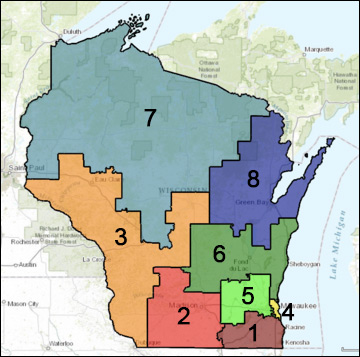By Jim Ellis
June 20, 2018 — The United States Supreme Court issued their long-awaited ruling on the Wisconsin political gerrymandering case on Monday, and it basically sends the parties back to the drawing board. At one time it was thought that Wisconsin was the vehicle for the high court to issue a definitive ruling regarding political gerrymandering, which continues to be the subject of many live redistricting lawsuits. Instead, on a rare 9-0 vote, the Supreme Court ruled that the plaintiffs did not have the necessary standing to bring the action.The plaintiffs came from four Wisconsin Assembly districts who claimed they were personally harmed by the state legislative boundaries the legislature and governor adopted back in 2011. The court ruled that such plaintiffs did not have adequate standing to bring a statewide lawsuit.
The court did issue some orders, however, that will make later political gerrymandering suits more difficult to bring because certain technical standards must now be met in future action. As part of the plaintiffs’ standing ruling, the justices vacated the lower court ruling that ordered the state assembly districts re-drawn. It is now likely that political boundaries around the country are finally set for the 2018 election.







